
– Author unknown

“Mosaics are made from broken pieces but they’re still a work of art. And so are you.”


– Author unknown

“Mosaics are made from broken pieces but they’re still a work of art. And so are you.”
What is The Salvation Army?
The Salvation Army, an international movement, is an evangelical part of the universal Christian Church.
Vision Statement
Wherever there is hardship or injustice, Salvos will live, love and fight alongside others to transform Australia one life at a time with the love of Jesus.
Mission Statement
The Salvation Army is a Christian movement dedicated to sharing the love of Jesus by:
• Caring for people
• Creating faith pathways
• Building healthy communities

• Working for justice
The Salvation Army Australia acknowledges the Traditional Owners of the land on which we meet and work and pay our respect to Elders, past, present, and future. We value and include people of all cultures, languages, abilities, sexual orientations, gender identities, gender expressions, and intersex status. We are committed to providing programs that are fully inclusive. We are committed to the safety and well-being of people of all ages, particularly children.
Founders William and Catherine Booth
Salvation Army World Leaders
General Lyndon and Commissioner Bronwyn Buckingham
Territorial Leader Commissioner Miriam Gluyas
Secretary for Communications and Editor-In-Chief
Colonel Rodney Walters
Publications Manager Cheryl Tinker
Editor Simone Worthing
Graphic Designer Ryan Harrison
Enquiry email publications@salvationarmy.org.au
All other Salvation Army enquiries 13 72 58
Press date 1 September 2023
Printed and published for The Salvation Army by Commissioner Miriam Gluyas at Focus Print Group, South Granville, NSW
salvosonline.org.au
Natural disasters of any kind, from catastrophic flooding to years of drought, are destructive, debilitating and can have lifelong consequences. For people impacted, the heartache, trauma and financial loss can be overwhelming.
In Salvos Magazine this week, we share content from The Salvation Army’s Moneycare book, Planning for the Unplanned: Are you financially ready for a natural disaster?
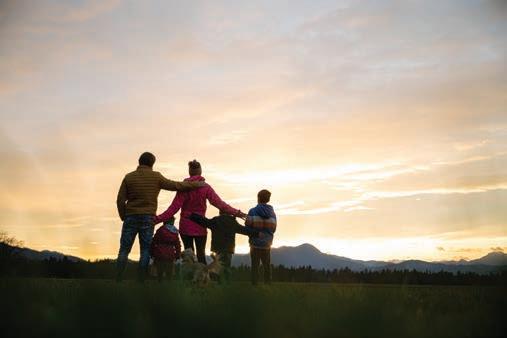
The content includes Moneycare’s top financial tips, as well as links to its free financial services, and the book can be downloaded online.
The support of community is essential in recovering from a disaster – financially, as well as emotionally and spiritually. Bryce Davies writes about the power of community in healing from a range of challenges, including homelessness and addiction, and the importance of following the example of Jesus to deeply love and care for one another.

In My Story, Ronald shares how, with the assistance of many others, he rebuilt his life after bushfires destroyed his home.
For these stories and more, go to salvosonline.org.au
Simone Worthing EditorSalvation Army is about giving hope where it’s needed most.
Are you financially prepared for a natural disaster?
Can you ever be truly financially ready for a natural disaster?
The Salvation Army Moneycare team set out to explore this question in 2022 when they published an online book, Planning for the Unplanned: Are you financially ready for a natural disaster?
Planning for the Unplanned is a guidebook, including real stories from people and supporting readers to develop their own plan for being prepared. We have also put together some tips (see opposite page) from Moneycare financial counsellors who are part of a team that for three decades has helped thousands of people gain control of their finances.
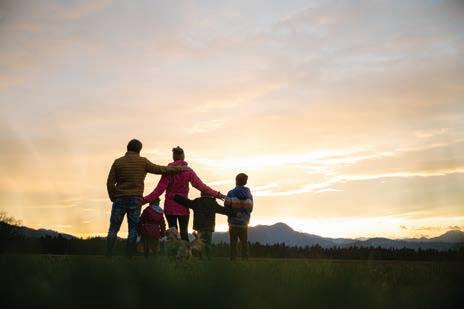
The Salvation Army has been at the forefront of recent bushfire recovery efforts, assisting more than 13,000 people through about 28,000 consultations in response to the Black Summer bushfires.
As a writer of one of the personal testimonies in the book points out, “Natural disasters aren’t personal.” And with the impact of the 2019-20 bushfires, followed by the 2021-22 floods, natural disasters are a continuing threat.
Planning for the Unplanned features a range of topics, including decisionmaking, budgeting, emergency savings, scams, insurance and more. Turn to pages 6-7 to read one feature from the book, ‘Dealing with Debt’.
Being financially ready for a natural disaster is not something you have to do alone. You may choose to use this book with others in your household, with family, or with friends.
For others, Moneycare has trained financial coaches who would be happy to support you on the journey of financial readiness. They will work with you on your goals for financial readiness, look at your options, and help connect you with a community of other supports if you choose.

• Don’t go it alone. Support is available, and seeking help is a sign of strength.
• Being financially prepared also means being socially and mentally prepared.

• Step-by-step gets the job done, and you are capable.
• Insurance is a safety net when something happens unexpectedly. Consider getting insurance to help protect what is most important to you.
• You do have rights. There are laws to protect you when you sign up for a loan or an insurance product.
• Have an emergency fund.
• Having a money plan is great. Having a system that allocates money where you want it to go is even better!
• Go with a ‘go bag’. Store your important documents in a safe place you can access when needed.
• Don’t sign anything you don’t understand. And read the fine print!
• People’s stories are important. And so is yours!
For more information and to find out about upcoming webinars, contact: Email: moneycare@salvationarmy.org.au Call: 1800 722 363
To download a free copy of Planning for the Unplanned, go to salvationarmy.org.au/need-help/financial-assistance/moneycarefinancial-resources, and scroll down to Planning for the Unplanned.
Sometimes you are managing debt just fine, but then you have a change in circumstances like a loss of income or a natural disaster and it can get on top of you.
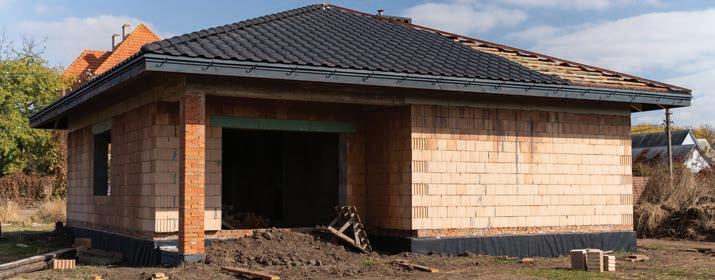
We know that debt can affect relationships, health, feelings of self-worth, stress and sleep patterns. The good news is that there are things you can do to live debt-free, starting today!
The first step is often clearing debts you already have; for example, credit cards, personal loans, Buy Now Pay Later, utilities, fines, school fees and unpaid taxes – debts you might have been hiding or avoiding. The Salvos Moneycare financial counsellors can help you with this.
Dealing with debt can be stressful, and it’s normal to feel overwhelmed. While your debt may seem like a problem that can’t be solved, there are things you can do and you don’t have to go it alone. Throughout the process, the best thing you can do is keep lines of communication open with the people and organisations you owe money to.
We know from research, and from the thousands of people who seek support from Moneycare each year, that there are two really important actions in staying afloat financially: actively saving and not borrowing for the everyday.
1. Go to your money plan (see page 49 of Planning for the Unplanned). If you are receiving more than (or equal to) what’s going out, you’re in the right spot to say ‘No’ to debt. If not, work out how to increase income or reduce expenses to avoid debt.
2. Make a list of what you own (assets) and what you owe (liabilities). This is the only way to know what you’re facing and work out your next steps.
3. Prioritise your debts. Some debts are more critical than others, and some ongoing expenses are essential.
• A roof over your head, food on the table and essential health items need to be covered.
• Electricity, gas, phone, internet, water, rates and insurance are also important.
• Secured debts, like a mortgage or a car loan, need to be maintained.
• Also consider:
* Are you in arrears (overdue) in making a payment?
* Is there legal action in process for an amount you owe?
THE DEBT TEST. Circle Y/N
I spend more than I earn each month and regularly dip into savings: Y/N
I put day-to-day expenses on credit cards (or using other types of debt products) because I have no money: Y/N
I’m only able to afford the minimum payment on my monthly credit card bill: Y/N
I’m unprepared for emergency expenses like car repairs or an unexpected medical bill: Y/N
I’m feeling stressed and avoiding opening the mail or responding to people chasing payments: Y/N
If you answered yes to any of these, you probably suffer from some financial stress. Don’t ignore the situation, take action today.
It’s important to let organisations know your situation if you’re having difficulty repaying your debts.
• See if they have a hardship team.
• Ask for an affordable repayment program with no or reduced interest.
• Explain your situation.
You do have rights: There are laws to protect you when you sign for a loan or owe money. For more information, contact the National Debt Helpline on 1800 007 007.
If the company you speak to is not helpful, you can complain to the independent ombudsman – usually the Australian Financial Complaints Authority (AFCA) www.afca.org.au 1800 931 678.
An impassioned plea for assistance for the nation’s asylum seekers and refugees
By Karen ElkingtonMajor Karen Elkington has been managing The Salvation Army’s Asylum Seeker and Refugee Service in Melbourne for the past 13 years. As a member of the Refugee Council of Australia delegation to a Parliamentary Friends of Refugees event at Parliament House in Canberra, she spoke during National Homelessness Week about the desperate plight of asylum seekers.
The phone rings at The Salvation Army Asylum Seeker Centre. The caller is a man seeking asylum who is in hospital and has no Status Resolution Support Service (SRSS) payment. Prior to being in hospital he was sleeping under a bridge. A cyclist collided with him and injured his leg. The man is desperate – he has had surgery, is about to be released from hospital and can’t walk.
We … call upon the Federal Government to change the system …
“Can you get me a wheelchair?” he pleads, “and somewhere to live?”
The most we can do is drop into the hospital with changes of clothing, some toiletries, a suitcase for him to pack a few belongings into and for our chaplain to spend time with him to provide pastoral support.
The Refugee Health Network advocates
for the man to be transferred to rehab where he will remain until he can at least walk with the assistance of crutches. After he leaves rehab it’s anyone’s guess what will happen. Sadly, no one can house him because it’s impossible to support people with long-term housing when they have no income.
We have another family who comes to us for assistance. They have no SRSS payment and the small church housing organisation that has been paying their rent for the past year is no longer able to do so. They simply do not have the funds.
Enquiries are made to many housing providers and the advice is the same. It’s impossible to house people without an income.
The Salvos Asylum Seeker and Refugee Service in Melbourne specialises in assisting people seeking asylum with financial help in the form of vouchers and material aid. We help with food, clothing, toiletries, children’s toys and cleaning products.
The Emergency Relief system is designed to help people through shortterm emergencies. However, the people we see are living in dire poverty and
a voucher is not enough for them to purchase food, medication, and to pay their utility bills or rent.
Our families are telling us they struggle to provide themselves and their children with enough fresh fruit and vegetables. The best we can do is pick up rescued food in partnership with Coles Second Bite. The food varies in quality. Sometimes there is a lot of it; other days it’s mostly bags of bread.
Many of our families without income go from one food charity to another. Some are very unwell, suffering mental health conditions and physical health problems. Some have told us their children are being treated at the Royal Children’s Hospital for malnutrition. All of them rely on community support to survive.
More and more of them are at risk of being homeless as charities struggle to raise the funds to pay for people’s rents on an ongoing basis.
The Salvation Army’s Homelessness Services are not set up to support people seeking asylum who have no income, and they do not have the resources to continuously house people seeking asylum. The Salvos can only support people with housing for a brief time, depending on funding.
Put simply, a person on an SRSS payment, if they become homeless, has a greater chance of accessing mainstream homelessness support services. Whilst people remain without an SRSS payment they will continue to couch-surf, sleep in cars or sleep rough.
We in the charitable and community services sector call upon the Federal Government to change the system so people seeking asylum can at least survive and at best thrive.
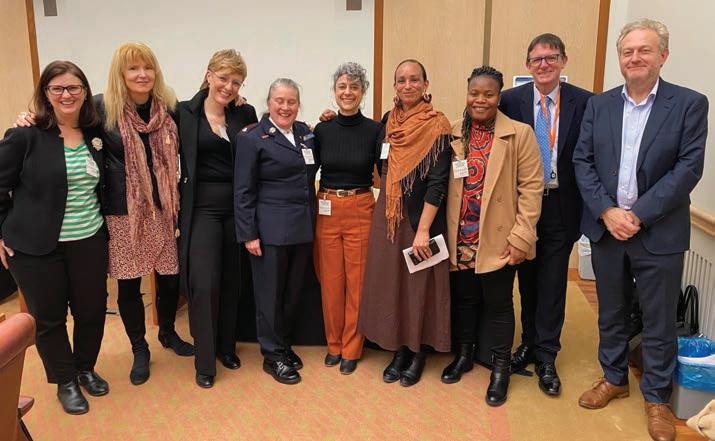
Scan here for more information on Salvation Army homelessness services.
There are some big problems in the world, aren’t there? It doesn’t take too much engagement with people to discover that there are tragic and deeply troubling situations everywhere. I have a friend who regularly goes to Nepal and deals with the struggle against the trafficking of young girls. It is a widespread and horrendous injustice, and it breaks her heart.
spirit of community for transformation to happen, and for organic responses to rise up and make a difference.
I have a long history of working for the Salvos with people struggling with substance abuse and homelessness. My experience tells me that a healthy community is the most effective strategy for contributing to a person’s recovery and wholeness, no matter what they are struggling with.

Visit any Salvo rehabilitation or drop-in centre and you will see the tragedy of homelessness, addiction, mental health issues and violence. People are suffering in this way every day across the country.
I have another friend whose son is addicted to gaming and is dangerously depressed and suicidal. People have serious relationship problems, financial troubles and health concerns and are often lonely, stressed and unhappy.
These are big issues and most of them are not going to be resolved by governments, community programs or an injection of funds. They often need the culture and
A healthy community is the most effective strategy for contributing to a person’s recovery and wholeness …PHOTO BY NINA STREHL ON UNSPLASH
In the Bible’s New Testament, Jesus tells his followers to “love each other deeply and fully” (John chapter 13, verse 34). He goes on to explain how –“Remember the ways that I have loved you, and demonstrate your love for others in those same ways.” Jesus went out of his way to acknowledge and care for others, and ultimately died on the cross for the whole of humanity.
Of course, serving others and selfsacrifice is not always easy for any of us, or for our society.
However, kindness and love are the currencies of hope and health, and when we invest in others we create the culture of love and community that has amazing restorative power in our lives individually and collectively.
It doesn’t need to be a massive thing to start. I’m not talking about anything that will damage us permanently or cause us to stumble ourselves, but I am suggesting that we can learn how to sacrifice for others in reasonable and helpful ways.
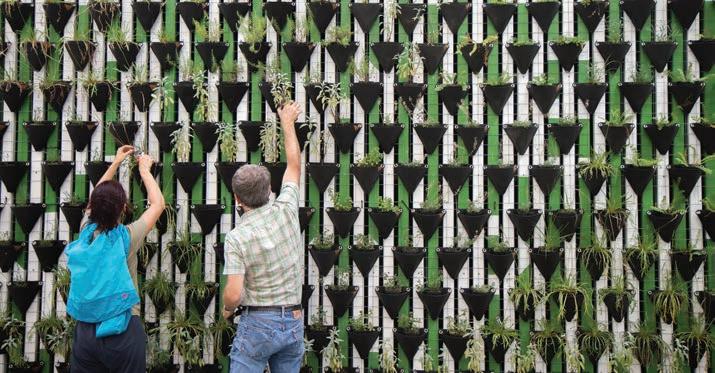
Every week, I run with people who are faster and fitter than me, but they run with the group for the benefit and community of others. Every week, Salvos across the country work in a range of settings as they value people and want to serve and care in ways that make a difference to the most vulnerable.
Every week, people volunteer at shelters and food vans to make sure vulnerable people are not forgotten or destitute. Every week, people think deeply and caringly about others who they know are struggling, and get involved in helping and serving.
This is the stuff of community, and it will never flourish if we keep to ourselves and take the safe, easy path.
Major Bryce Davies is a Salvation Army officer (pastor) based in Queensland.
I was living on the farm that I’d been on for many years. I’d built everything on the farm – the timber mill, my own house and a few sheds. It was a very low income, but I did some computer consulting work to supplement that.
My wife, child and I were living in the house with my older son when we got a phone message that was basically a warning. My son and I thought about it – we’ve got water, we’re right next to a big creek, we’ve got a big pump. If it is anything like any other fire we’d seen, we could handle it – we’d just fight it.
As it approached, we felt the winds and saw the ferocity of what was coming. We jumped in the car and got away before the fire hit the house. My son stayed and tried to fight it, but in the end, he had to flee at the last minute. He drove over a burning bridge to get off the property.
In the days after the fire, I bought a tent and put it up below the original house site and we lived day-to-day. We were visited by the fire department inspectors from Sydney and by the house insurers.
The fire inspectors actually said that they’d never seen a house site that had burnt so hot that it turned the clay soil around it into the equivalent of terracotta tiles.
We had grabbed important documents before we left, saved a few clothes, and I saved my guitar. And I did have a fireproof safe that meant I didn’t have to worry about important heirlooms and documents. But I lost a lot of things.
After we got some financial assistance from the Government, the Red Cross and The Salvation Army, we rented a friend’s house in Grafton. While we were there, The Salvation Army Moneycare called and asked if they could be of service to us.
I tended to live on credit card debt when I wasn’t consulting, and I could see it was going to be tricky to pay it off. Moneycare very kindly offered to negotiate on my behalf with the bank, getting some of the debt waived, which saved me around $11,000. That was a huge help.
We stayed in that house for just over six months. We then found a ‘fixer-upper’ house for sale in the closest village to the farm and were able to move in.
Be ready to reinvent yourself at any moment in your life.
I won’t go back to the farm. I’m 73, I’ve had three spinal fractures and I’ve been through chemotherapy for prostate cancer. I’m going through what they call long COVID, so I don’t have much stamina at the moment.

The fire taught me a lot.
I certainly would have done many things differently. I would have had water tanks up the hill and a very large capacity sprinkler unit, so that the whole house would be under a heavy soak when the fire hit. And I would have built shutters that came down over the vulnerable parts of the house that would have deflected the flames.
Be prepared to lose everything and have a clear list ready of what you think is important to take. Always have a box trailer if living on a country property. Have items clearly marked so when the
time comes, you can throw them in the trailer and get out.
I’ve learned not to be too attached to possessions, so that when you lose things, you’re prepared to still be a person and not identify with your loss. *Name changed to retain anonymity
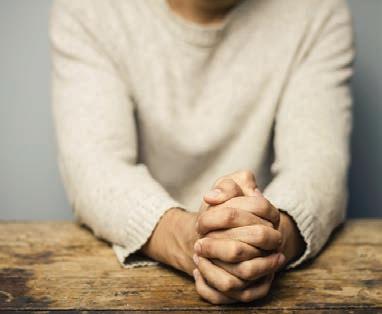

Ingredients
2 cups zucchini, grated; 1 cup carrot, grated; 1 onion, diced; 1 cup cheese, grated; 3 rashers bacon, diced; 1 cup self-raising flour; ½ cup oil; 2 eggs, beaten
Method
• Preheat oven to 180°C.
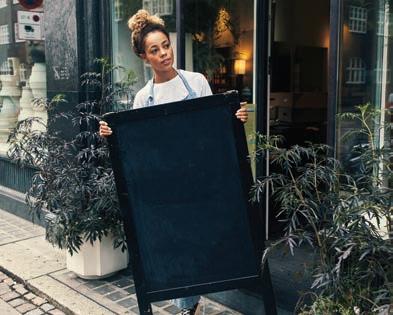
• Place all ingredients in a large bowl. Mix well together.
• Line slice tray with baking paper.
• Pour mixture into tray and bake in oven for 35-40 minutes or until lightly golden.
• Cut into squares to serve. Eat hot or cold.
What’s a pirate’s favourite type of exercise? The plank!
Why does it take pirates so long to learn the alphabet? Because they can spend years at C.
Why did nobody want to play cards with the pirate? Because he was standing on the deck.
THERE ARE FOURTEEN MUSCLES ACTIVATED WHEN YOU POUR A CUP OF COFFEE FITNESS IS MY PASSION
On which page of this week’s Salvos Magazine is Tum-Tum hiding?
1. According to the World Federation of the Deaf, how many million people who are deaf are there worldwide?
2. What sign language is primarily used by Australia’s community of people with hearing loss?
3. In what year did the Australian Government recognise Auslan as an official language?
4. Around how many Aussies use Auslan daily to communicate?

5. Does Auslan use English grammar?

“My help comes from the Lord, the Maker of heaven and earth.”
Psalm chapter 121, verse 2
New International Version
Djarrtjuntjun Yunupingu 1956-2013
Mandawuy Djarrtjuntjun Yunupingu was from the Gumatj nation in North-East Arnhem Land
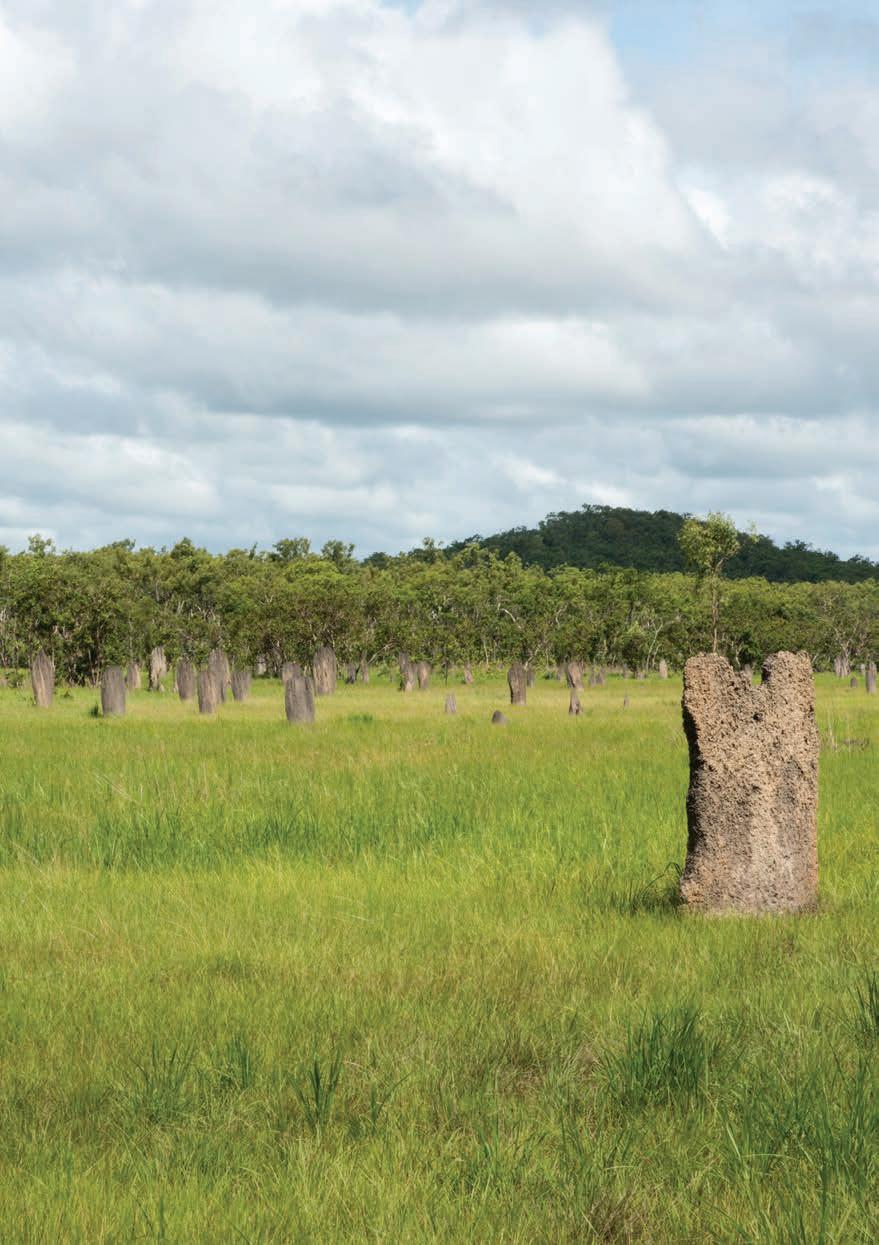
“Racism is a disease in society. We’re all equal. I don’t care what their colour is, or religion. Just as long as they’re human beings, they’re my buddies.”
– Mandawuy